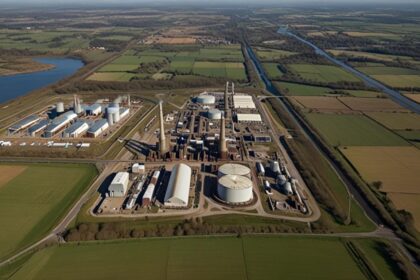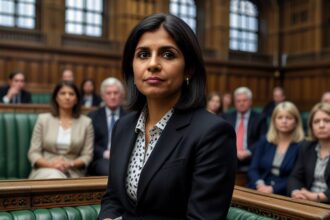Neel Kashkari, President of the Minneapolis Federal Reserve, stresses the importance of maintaining high interest rates to combat inflation, highlighting Americans’ apprehension towards rising prices. His cautious approach aligns with sentiments of other Fed officials, aiming to ensure long-term economic stability despite potential growth slowdowns.
Neel Kashkari Advocates for Prolonged High Interest Rates Amid Inflation Concerns
Neel Kashkari, President of the Minneapolis Federal Reserve, has expressed the need for interest rates to remain high for an extended period to ensure inflation is under control. Speaking on the FT podcast The Economics Show on May 27, 2024, Kashkari highlighted Americans’ strong aversion to inflation, noting that some would prefer a recession over rising prices. He referenced the resilient U.S. economy, stating that while inflation is decreasing, many remain dissatisfied due to recent high inflation experiences.
Kashkari emphasized that premature rate cuts could jeopardize long-term economic stability, and more data is needed to confirm a sustained reduction in inflation. Despite not voting on the Federal Open Market Committee (FOMC) this year, his hawkish stance supports keeping rates within the current 5.25% to 5.5% range until evidence consistently shows inflation nearing the Fed’s 2% target. This cautious approach is shared by other Fed officials preferring to maintain higher rates even at the risk of slower growth.
Persistent high borrowing costs and inflation are significant issues for President Joe Biden’s administration as he campaigns for re-election. Despite low unemployment and robust post-pandemic growth, inflation remains a central concern for voters.
Asian Markets Surge Following Positive U.S. Inflation Report
Major Asian stock markets surged on June 1, 2024, following a rally on Wall Street, driven by a report indicating no worsening in U.S. inflation. Hong Kong’s Hang Seng led with a 2.7% rise, while Japan’s Nikkei 225 increased by 0.9%. Other notable gains included South Korea’s Kospi up by 1.9% and Taiwan’s Taiex by 1.9%.
The U.S. S&P 500 had risen 0.8% on Friday, May 31, 2024, marking its sixth winning month out of the last seven, amid optimism that inflation is stabilizing towards the Federal Reserve’s 2% target. Treasury yields eased following the report, potentially reinforcing the Fed’s confidence that inflation is sustainably declining. However, concerns about high borrowing costs and their economic impact persist.
In other market movements, crude oil prices and the U.S. dollar saw minor changes, with Brent crude reaching $81.57 per barrel and the dollar slipping slightly against the Japanese yen to 157.13 yen.
These developments reflect cautious optimism in global markets as economic data continues to influence investment decisions and policy expectations.













